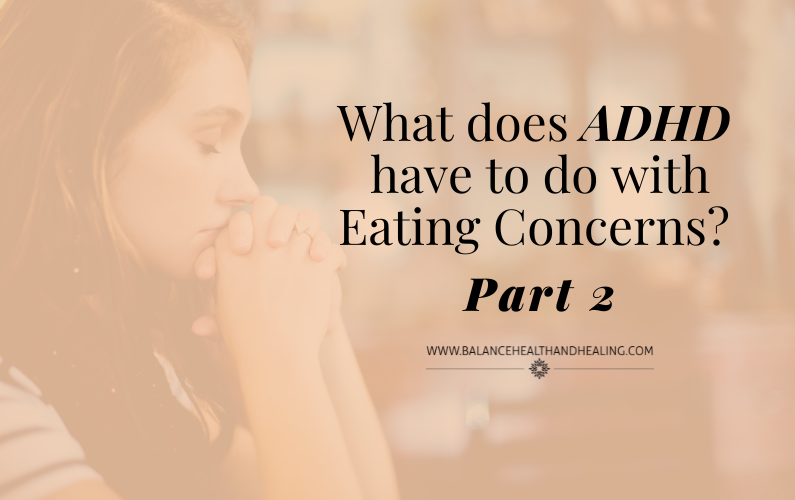
What does ADHD have to do with Eating Concerns? Part 2
The more we learn about ADHD and eating disorders, the more we are coming to understand that the incidence of ADHD is actually higher in the eating disorder population and is not just eating disorders “looking like” ADHD. Something is happening here that warrants further understanding and exploration of how we approach eating disorder treatment when this comorbidity is present.
There are biological, cognitive, and behavioral patterns inherent in both that can influence the severity and longevity of the eating disorder, as well as the recovery trajectory. People with ADHD and eating disorders have differences in how their brains process rewards, often looking for dopamine hits that can come from eating disorder behaviors. Disturbance in body awareness as an associated feature interferes with the ability to feel hunger/satiety cues and feelings. Difficulties with decision-making, planning, as well as time-blindness and difficulty with transitions, make it harder to meal plan and nourish oneself consistently throughout the day. People with ADHD often seek certain types of food making it more difficult to eat a wide variety of food. These are just some of the many nuances that show up with clients who have both an eating disorder and ADHD.
The treatment for ADHD is very clear in the literature. We know that medication is incredibly helpful above and beyond therapy and behavioral modifications alone. As I mentioned before, it gets messy when someone also has an eating disorder as many ADHD medications are known to suppress appetite. But instead of concluding that medicating ADHD for someone who also has an eating disorder is contraindicated, we need to explore the nuances in this as well.
While ADHD medication may compromise hunger cues, the medication may also help to overcome other barriers to recovery. For example, the client may be better able to strategize and execute on their meal plan as they suddenly have the brain capacity to do so. ADHD medication can relieve some of the symptoms that the eating disorder worked to mitigate, such as dysphoria, distress, feeling overstimulated and overwhelmed. Clients may be better able to tolerate the distress inherent in eating disorder recovery with the help of medications that can calm their minds.
I am not “that kind of doctor” that can assert medication for clients. I am the kind of doctor who advocates for treating all the presenting concerns our clients face. And the more we understand about ADHD and its relationship to eating disorders, we understand the critical importance of treating both illnesses. If we only treat the eating disorder and neglect ADHD, our clients will likely struggle more on the path to recovery and in their ability to sustain it. Besides this, we would be neglecting ongoing and treatable pain that were treated, which would bring immense relief, increased confidence, self-awareness, and continued motivation.
We have a lot more to learn and understand about ADHD and eating disorders. And what we do know so far, calls us in the field to look closely at the nuances these presentations bring to treatment, and how we need to be flexible, mindful, and deliberate in how we help treat our clients to optimize their success.


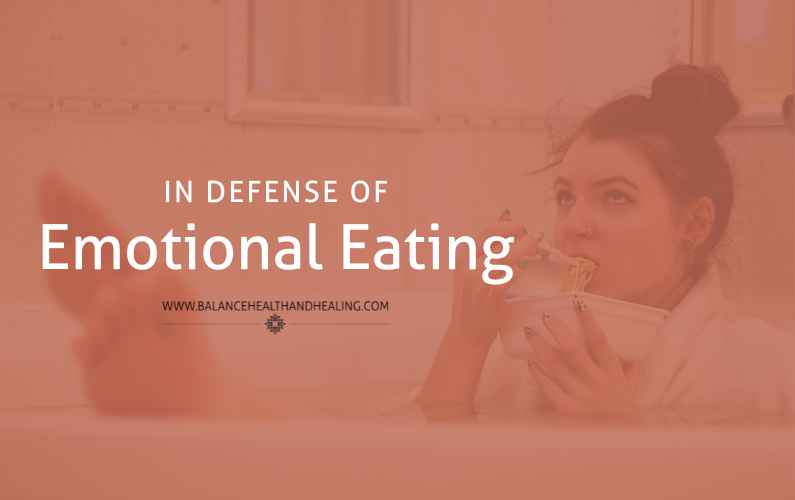
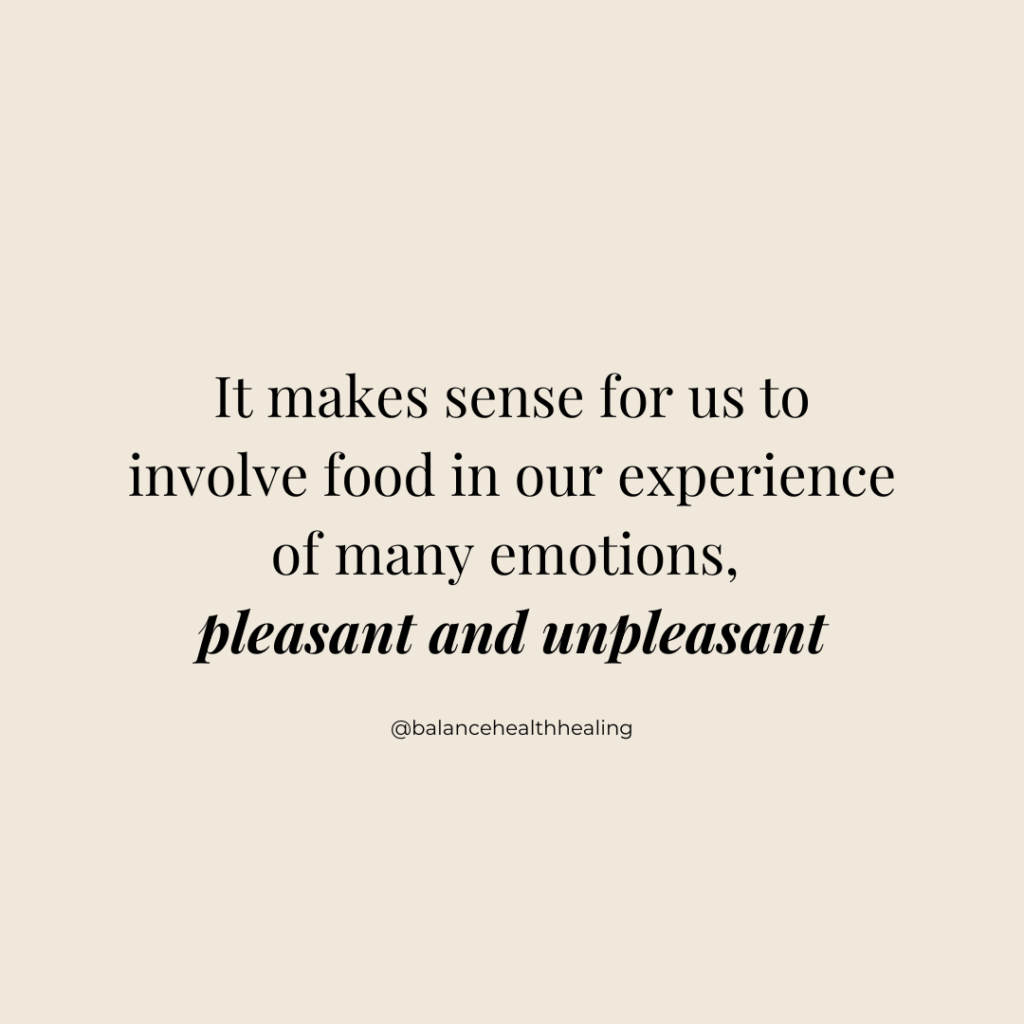
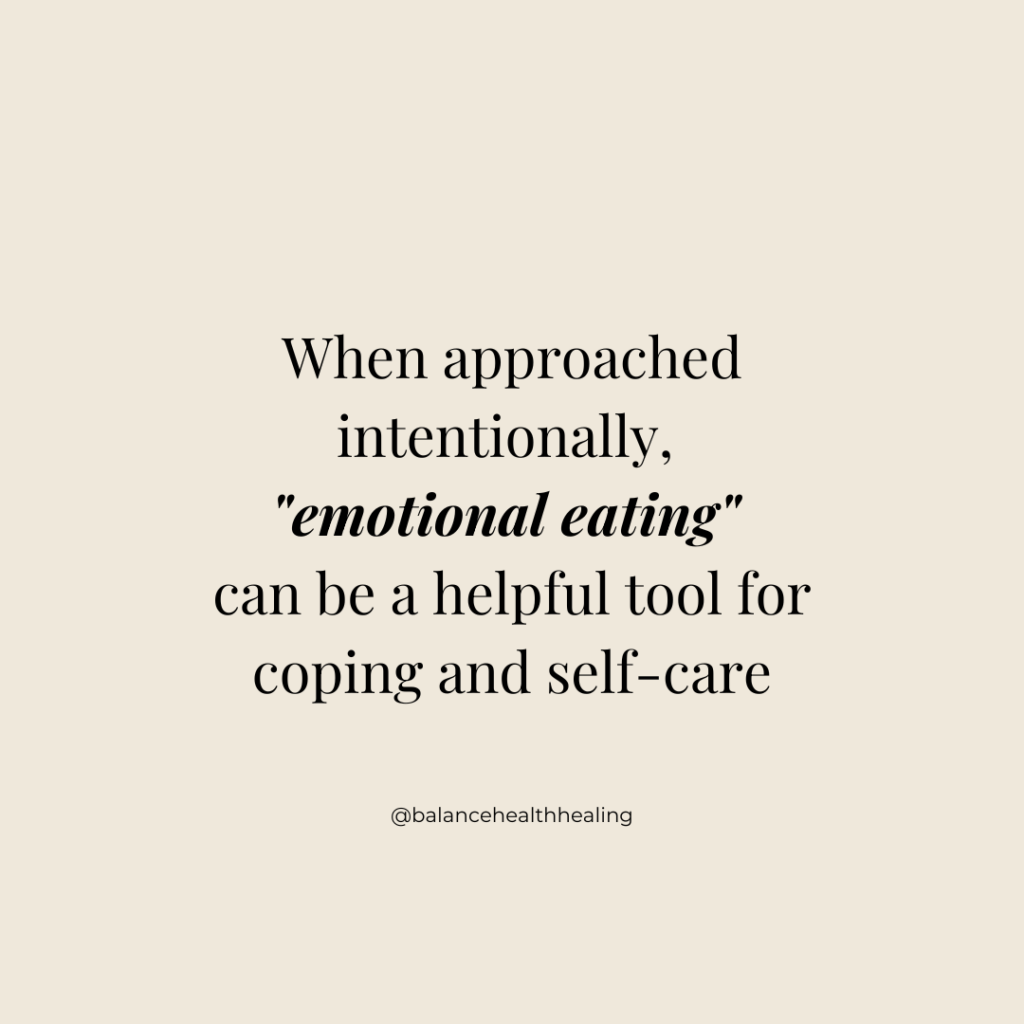
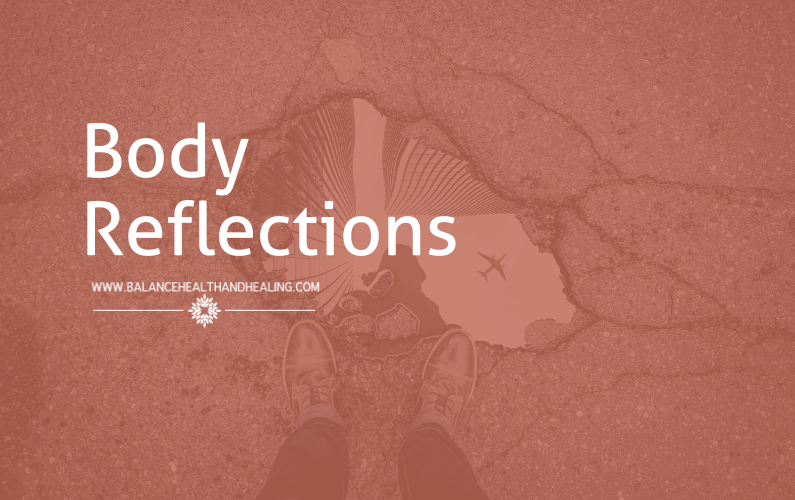
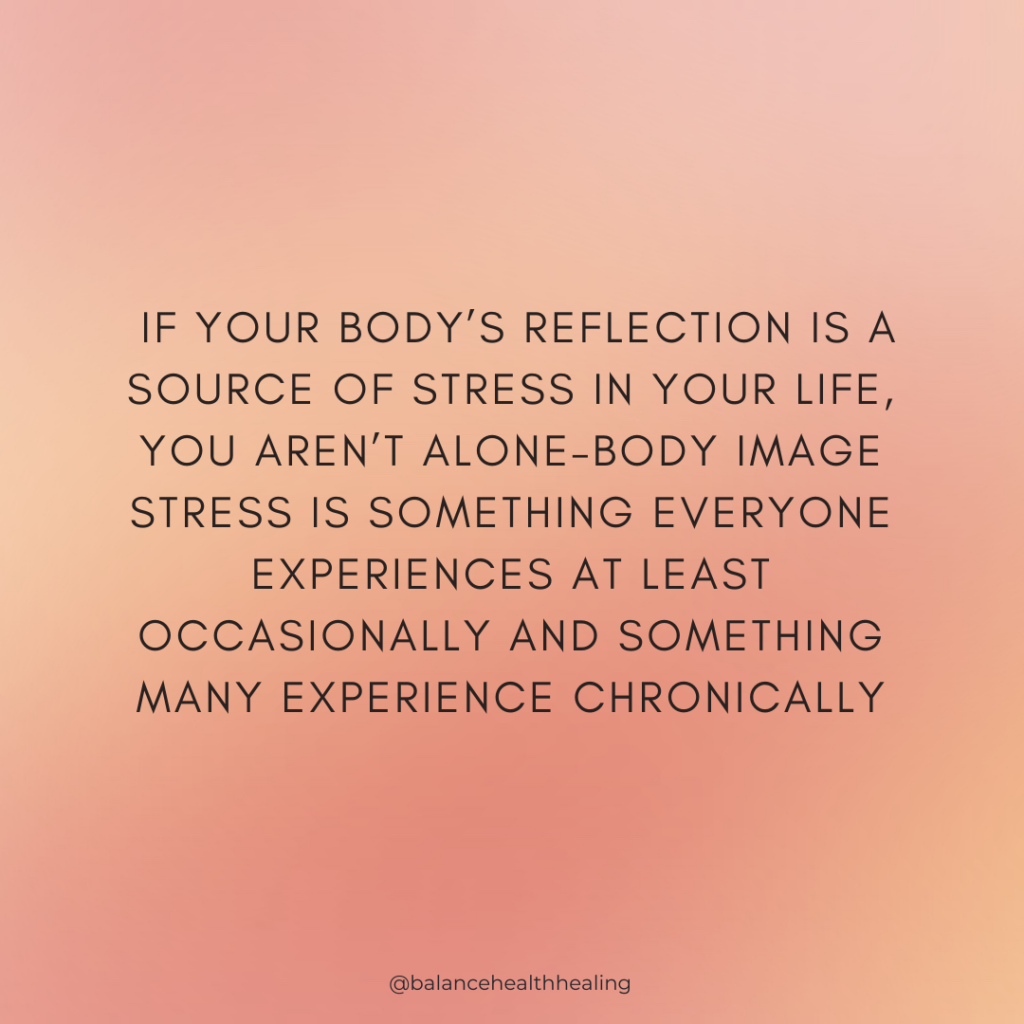 your life, you aren’t alone–body image stress is something everyone experiences at least occasionally and something many experience chronically.
your life, you aren’t alone–body image stress is something everyone experiences at least occasionally and something many experience chronically.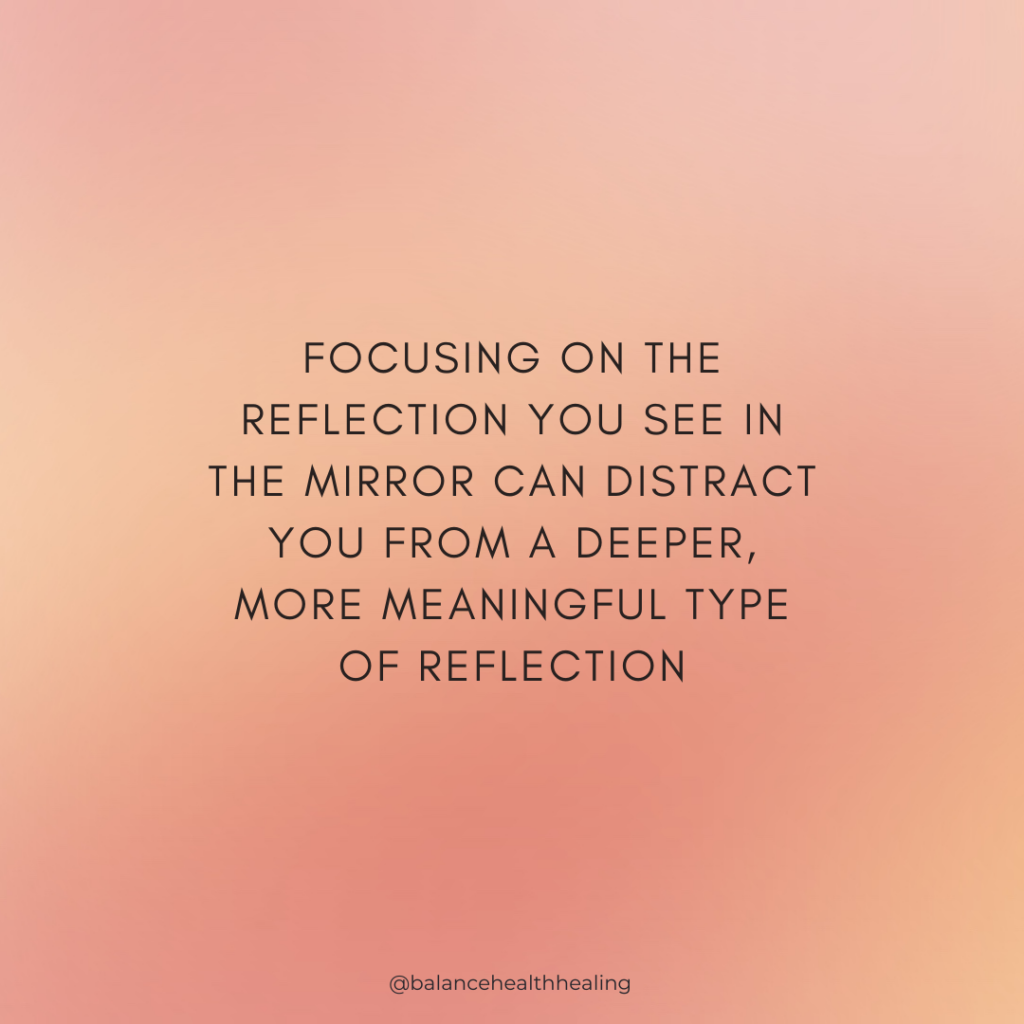 For today’s blog, I want to take the word “reflection” and use its other definition–not the one that means an image thrown back to you by the mirror. Reflection (noun): thought or consideration. The end of the year is a time when we naturally reflect–look back on and consider our experiences, thoughts, and emotions. If body image is a struggle for you, you might find it helpful to do some reflection on your relationship with your body beyond its reflection in the mirror. Here are a few questions that might help you reflect.
For today’s blog, I want to take the word “reflection” and use its other definition–not the one that means an image thrown back to you by the mirror. Reflection (noun): thought or consideration. The end of the year is a time when we naturally reflect–look back on and consider our experiences, thoughts, and emotions. If body image is a struggle for you, you might find it helpful to do some reflection on your relationship with your body beyond its reflection in the mirror. Here are a few questions that might help you reflect.